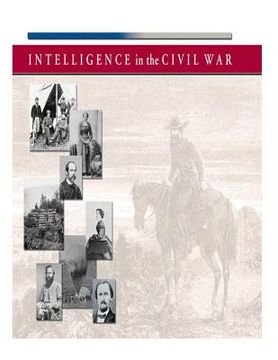Synopsis "Intelligence in the Civil War"
Though much has been written about the Civil War itself, little has been written about the spy war that went on within.The chronicling of Civil War intelligence activities challenges historians because of the lack of records, the lack of access to records, and the questionable truth of other records. Judah P. Benjamin, the Confederacy's Secretary of State, burned all the intelligence records he could find as federal troops entered Richmond. Union intelligence records were kept sealed in the National Archives until 1953. A few individuals involved in intelligence gathering burned their personal papers while others chose to publish their memoirs, though greatly embellishing their exploits. Even today, the identities of many spies remain secret. Henry Thomas Harrison, for example, was a Confederate spy whose intelligence set in motion the events that produced the battle of Gettysburg. But neither his first name nor details of his long career as a spy were known until 1986, when historian James O. Hall published an article about him. Though the idea of centralized intelligence gathering was decades away, the age-old resistance to the idea was present even then. Neither side saw the need to create such intelligence organizations, but each side approached the idea of effectively acquiring intelligence in their own way. The Confederacy's Signal Corps, devoted primarily to communications and intercepts, included a covert agency, the Secret Service Bureau. This unit ran espionage and counter-espionage operations in the North. Late in the war, the bureau set up a secret headquarters in Canada and sent out operatives on covert missions in Northern states. The Union's Bureau of Military Information, unlike the Confederacy's Secret Service Bureau, operated for specific gener-als rather than for the Union Army itself. But here was born the idea of what would eventually become a centralized military intelligence division. Each side still used age-old intelligence techniques, such as code-breaking, deception, and covert surveil-lance. However, into this modern war came two innovations that would endure as tools of espionage: wire-tapping and overhead reconnaissance. What follows is a look at some of the highlights of how the North and the South gathered and used their information, the important missions, and the personalities. From this special view, the focus is not on the battlefield, but on a battle of wits.

